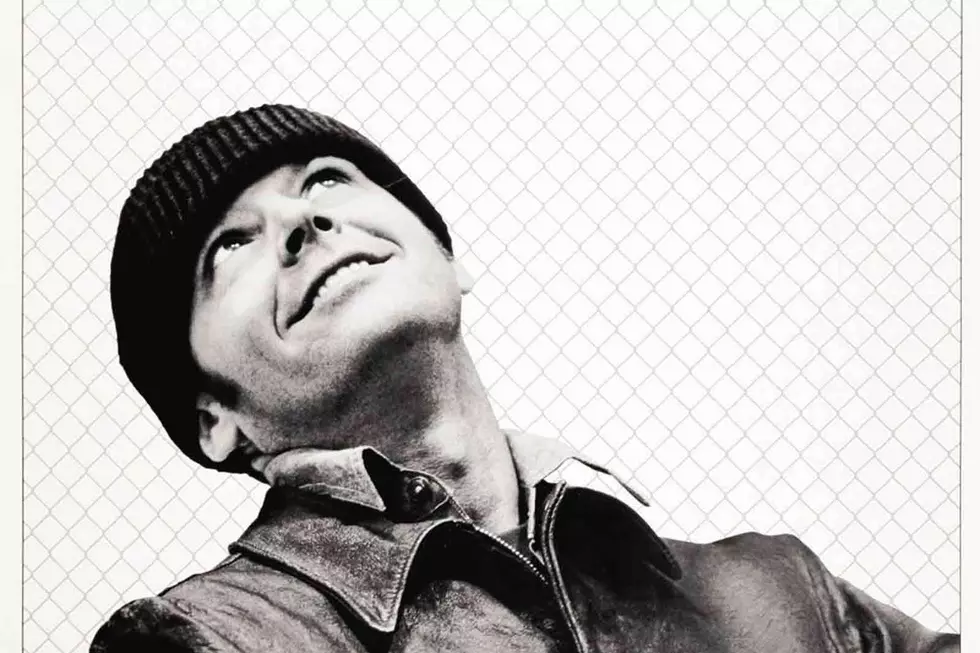
45 Years Ago: ‘One Flew Over the Cuckoo’s Nest’ Becomes an Instant Classic
Jack Nicholson was already a star before he was cast in the movie adaptation of Ken Kesey's One Flew Over the Cuckoo's Nest. Movies like Easy Rider, Five Easy Pieces and Chinatown made him a counterculture and critical favorite in the years leading up to Cuckoo's Nest's opening on Nov. 19, 1975.
After that, he was untouchable.
Kesey's 1962 novel was about the residents of an Oregon psychiatric hospital, particularly Randle Patrick McMurphy, a troublemaker serving time in prison for a number of offenses before he has himself committed as insane so he can be relocated to a mental institution to serve out his sentence.
But his dreams of an easy life at the facility are shattered by the evil Nurse Ratched, who runs the place through manipulation and threats, to the point where everyone under her charge - including doctors and other staff members - is scared to question her authority and iron-fist rule. McMurphy decides to test her, which results in tragic endings for some fellow patients as well as McMurphy himself.
Kesey, an early champion of LSD who befriended the Grateful Dead and other psychedelic groups in the '60s, wrote One Flew Over the Cuckoo's Nest just as psychiatry and its various controversial ways of dealing with patients - including lobotomies, which figure into his story - reached public consciousness. He based the story on his own experiences as an orderly at a California facility, where he worked late-night shifts similar to the ones that contain many of the book's and movie's key scenes.
Both works are clear indictments of a system in need of change. And both works, in a way, are real-life horror stories from the frontlines. (There was also a Broadway play that premiered a year after the novel's publication.) On one side, there's McMurphy, violent, aggressive but not crazy; on the other, Ratched, so used to getting her way that she resorts to desperate measures when challenged by her new patient. From the start, there can be only one victor, and both charge head-first into the other, leaving innocent casualties in their wake.
One Flew Over the Cuckoo's Nest was more than just a drama set in a mental institution; it was a reflection of changing thoughts, mores and values during both the Kennedy and post-Watergate years. And, to its credit, it makes sense and fits in both eras.
Watch the Trailer for 'One Flew Over the Cuckoo's Nest'
But that's not why One Flew Over the Cuckoo's Nest was an immediate hit with critics and audiences. The story, adapted for the screen by Lawrence Hauben and Bo Goldman, was great, as was Milos Forman's on-target direction. So was the cast, including Louise Fletcher as the cold, steely Nurse Ratched, and Brad Dourif, Will Sampson and future Taxi co-stars Danny DeVito and Christopher Lloyd as inmates. But one actor drives the film from his first moment onscreen to last: Jack Nicholson.
He'd built a career steadily over the past decade and a half, starring in some B-pictures in the late '50s and early '60s (like The Cry Baby Killer and The Little Shop of Horrors) before moving on to exploitative fare such as Psych-Out and The Rebel Rousers before one of those biker/drug movies, 1969's Easy Rider, turned him into a star.
One Flew Over the Cuckoo's Nest was the first film to fully show Nicholson's range. He's charming, annoying, scary and pitiable as McMurphy initially challenges Ratched for control of the ward and eventually loses to her and the corrupt system. No wonder cynical mid-'70s moviegoers gravitated toward him and the film: He was the perfect antihero for the times.
The movie took Nicholson to a whole new level. He won the first of his three Oscars, one of only six actors to notch that number, for his portrayal of McMurphy. (He's been nominated a total of 12 times, the most of any male actor.) But more than that, he quickly became one of the most popular and heralded actors of his generation, with roles in such disparate movies as The Shining, Terms of Endearment, Batman, As Good as It Gets and The Departed over the years.
But none is as monumental as McMurphy; the iconoclastic character defined the iconoclastic Nicholson. He's the film's anchor, but it's pretty much across-the-board perfect. The Academy of Motion Picture Arts and Sciences thought so, too, awarding One Flew Over the Cuckoo's Nest with all five of the year's top Oscars: Best Picture, Actor in Lead Role (Nicholson), Actress in Lead Role (Fletcher), Director and Screenplay. It was only the second time in history that a film swept the major categories - It Happened One Night did it more than 40 years earlier in 1934. (Since then, only one other movie, 1991's The Silence of the Lambs, has achieved this feat.)
And time has not mellowed the brutality of the movie's central theme or haunting final scene. It's spiritually uplifting in some ways, a total downer in others. The mental institution feels real because it is: The same Oregon facility where Kesey set his novel was used during filming. And its ending is so much more tragic because of the lightness of some of the scenes that precede it. But movies could be like that in the '70s, serving the counterculture while acknowledging that the bad guys, more often than not, are probably going to win in the end.
The Best Rock Movie From Every Year: 1955-2019
More From Fun 104










